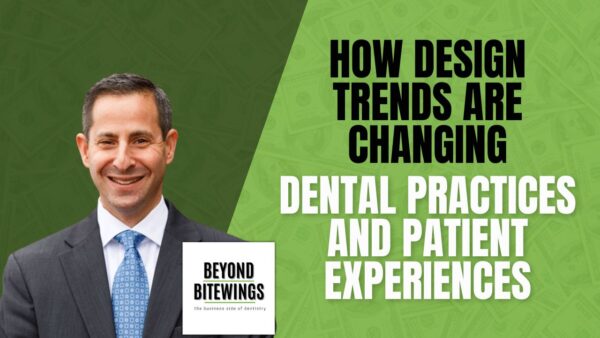Key Takeaways:
- Encourage team members to review their own designations to prevent major issues later.
- Beneficiary designations on accounts override wills and trusts, often determining who receives your assets.
- Outdated or missing designations can derail even the best estate plan, sending funds to ex-spouses or deceased relatives.
- Dental practice owners should review all accounts annually and after major life or business changes.
- Align beneficiary forms with your estate and succession plans to prevent unintended outcomes.
As a dental practice owner or manager, you focus on delivering excellent patient care, building a strong team, and keeping your practice efficient and profitable. But one critical detail can silently derail your estate plan and leave your loved ones with unintended outcomes: beneficiary designations on your accounts.
Whether it’s a brokerage account, a life‐insurance policy, or a retirement plan for you or your key team member, the named beneficiary on the account often overrides your will, trust, or other documents. That’s not just a legal nuance; it’s a tangible risk to your personal finances and legacy. According to Trust & Will, “typically, a beneficiary designation overrides a will.” This means that assets with named beneficiaries go directly to the named beneficiary, in most cases, regardless of what your will says.
Example 1: The Retiring Dentist
Dr. Gray runs a thriving 8-operatory practice and plans to retire, leaving the business to his two children equally via his will. However, his 401(k) still names his ex-wife as the beneficiary because he “never got around to updating it after the divorce.” Upon his passing, the 401(k) rolls outside of probate and goes directly to his ex-spouse, despite the will’s instructions. And because it bypassed probate, it happens quickly and without court oversight.
This scenario is more common than you might think. A bank account with a payable-on-death (POD) beneficiary or a retirement plan with a named heir doesn’t follow your will. It bypasses the process and the family discussion.
Example 2: The Practice with Key Employee Life Insurance
Your practice has a life insurance policy on a valued office manager, and you’ve named the manager’s spouse as the beneficiary. But after a major life event, the manager’s marital status changes and the spouse is divorced. The policy was never edited. When the manager passes, the death benefit goes to the ex-spouse. This outcome was legal, even though everyone assumed the payout would go elsewhere, because the beneficiary designation was the controlling document, not the practice’s expectations.
Why this matters for dental practices
- You and your team commonly have retirement plans, insurance policies, investment accounts, and business assets with beneficiary designations.
- Dental practices often involve transitions, such as ownership changes, key employee departures, and generational succession, so beneficiary designations need to be reviewed regularly.
- Owners may update their will when they retire or sell their practice, but if they don’t update the underlying account forms, assets can pass to unintended parties.
What you should do right now
- Inventory all assets with beneficiary designations: retirement plans (IRA, 401(k)), life insurance, investment and brokerage accounts, bank POD/TOD accounts.
- Review, and potentially update, accounts after major life events: marriage, divorce, birth of children/grandchildren, sale of practice, key employee transitions.
- Align beneficiary forms with your estate plan: If you update your will but not the account forms, the account forms take precedence.
- Educate your team: If you have key-person insurance, ownership interests, or buy-in mechanisms for your practice, remind your team to review their designations.
- Schedule regular reviews: At a minimum, look annually or when you or any beneficiary undergoes a major event.
- Document and communicate: While you don’t provide tax advice to employees or associates, you should remind them that the beneficiary form matters just as much as the will. Provide a short memo or checklist.
Your estate plan is only as strong as its weakest link, and often that’s the beneficiary designation form. Don’t assume that because your will or trust is perfect, all is handled. For dental practice owners and managers who juggle so many moving parts, taking time now to review and update those forms can save your loved ones confusion, lost time, and unintended fees down the road.
To make your annual review process easier, download this Beneficiary Designation Review Checklist. This one-page guide simplifies what to check, when to update, and how to keep your records aligned with your estate plan.




